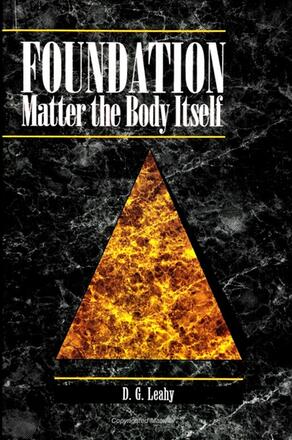
Foundation
Matter the Body Itself
Alternative formats available from:
Description
This book presents the ontological and logical foundation of a new form of thinking, the beginning of an “absolute phenomenology.” It does so in the context of the history of thought in Europe and America. It explores the ramifications of a categorically new logic. Thinkers dealt with include Plato, Galileo, Hegel, Kierkegaard, Marx, Nietzsche, Husserl, Heidegger, Peirce, James, Dewey, Derrida, McDermott, and Altizer.
D. G. Leahy is Associate Professor of Religion at New York University, and the author of Novitas Mundi: Perception of the History of Being, also published by SUNY Press.
Reviews
"The considerable merit of this book is the utter intensity and seriousness of virtually every page. Leahy is an original thinker and a writer who means what he writes. Although this makes for difficult reading, it is a rare and precious gift. The scholarship is impeccable." — John J. McDermott, Texas A&M University
"If God, Godhead, Trinity, Incarnation, Time and Eternity are significant to and central in Christian theology, this work is central to theology. If the relation between the ideal and the actual, the local and the universal are significant to and central in philosophy, this work is central to philosophy. The author combines rigorous systematic thinking with a remarkable knowledge of the history of ideas: his concepts resituate many of the classical thinkers in both theology and philosophy. Especially stunning, to this reviewer, is Leahy's reconstrual of Aquinas (and medieval thought generally), Hegel, and the uniquely American philosophers.
"Leahy opens another 'high road around modernity,' and thus an appealing alternative to a variety of post-modernisms while retaining their critical force. He restores thinking to centrality in theology, rescuing it from a mindless drift in recent decades. Eschewing any final distinction between theology and philosophy, he sees in the American theology embodied in this thinking the fulfillment of American philosophy's aspiration to (hitherto postponed) perfectly 'exterior' Godhead.
"Reading Leahy is like reading Nietzsche; to the degree that one understands, one is shaken in the foundations—and if not so shaken, one does not understand. (And the comparison is not inapt, since it is in part the modernity shaken by Nietzsche that Leahy aspires to transcend.) In short, every great work must create its readers, and I believe Leahy's work holds just this potential. His writing is as compact and precise as could be imagined, given what he is given to say: as with all conceptual expression not alien to the poetic sense, there is a certain inevitability to it in respect of form." — Ray L. Hart, Boston University
"This book is wild, but extraordinarily competent. It is a truly brilliant work. Here we have a thinker who has used the resources of the Western tradition to think genuinely new and profound thoughts." — Robert C. Neville